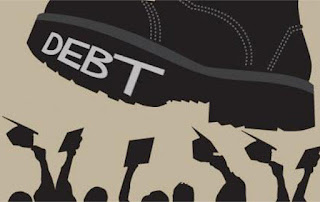Donald Trump has been mentally ill for a long time. But, Jennifer Rubin writes, he's getting loonier:
One does not need a medical degree or a therapist’s license to conclude that defeated former president Donald Trump’s nutty rant insisting that he be made president immediately or the 2020 election be rerun is the sign of an unhinged personality. Under pressure from the increasingly potent espionage investigation, he might be losing his grip. For a change, you don’t hear Republicans rushing forth to support his latest insane demand.
Trump’s posting of QAnon messages and implicit threats (in increasingly unintelligible syntax) suggests that he is losing the ability or desire to control his impulsive outbursts. This is the guy whom millions of Republicans want to nominate for president.
But Republicans have run out of defenses for Trump:
Since the redacted affidavit was released last week, the only two defenses from Republicans are no defenses at all. The first, courtesy of Sen. Lindsey O. Graham (S.C.), amounts to extortion: Prosecute Trump and there’ll be blood in the streets. The second is the laughable inquiry: Is that all? It’s not “all,” because the affidavit was heavily redacted. Moreover, the notion that we are talking “just” about documents ignores that most espionage cases are about documents (or equivalent material). That’s where the secrets are.
Trump defenders ignore at their own risk ample indications in the affidavit and news reports that documents were withheld even after a Trump lawyer represented that all confidential material had been returned, that the documents were in an unlocked storage area and that documents were moved. Any rational adult should be aware that evidence might show that Trump violated statutes the Justice Department cited in the affidavit (concerning obstruction and concealment/mutilation/removal). If so, aggravating crimes in addition to violation of the Espionage Act may be at issue.
Still, there is little to no sign that Republicans are ready to distance themselves from someone who risks an indictment in state and federal court and resorts regularly to incoherent rants that not even right-wing media dare repeat (lest they scare their viewers and listeners). Instead, they mutely march along, taking his advice on nominees and reiterating their support for another presidential run.
Their refusal to confront Trump’s current mental and legal status takes procrastination to a whole new level. Are they hoping that he’ll be indicted well in advance of 2024? Well, if past is prologue, then we shouldn’t discount the possibility that they would still nominate him. (Martyr! Deep state!). Hoping that another candidate comes along to point out that Trump is unelectable is peculiar given their own insistence, amplified by the right-wing media, that he’s the only one to lead the party.
If they are counting on the good sense of GOP primary voters to dump him, they might take a look at the MAGA loonies voters picked in primaries ahead of the midterms (e.g., Jan. 6 attendee and Pennsylvania gubernatorial candidate Doug Mastriano; MAGA provocateur and election-denier Kari Lake in Arizona).
Just how they expect to rid themselves of someone like Trump is unclear. They have delegitimized law enforcement, the media and the few sane Republicans (e.g., Rep. Liz Cheney). So, figuring out who exactly is supposed to now convince the base that Trump is, after all this, too toxic and deranged to be the nominee may be a challenge.
When insanity goes viral, the whole house burns down.
Image: Change.org














